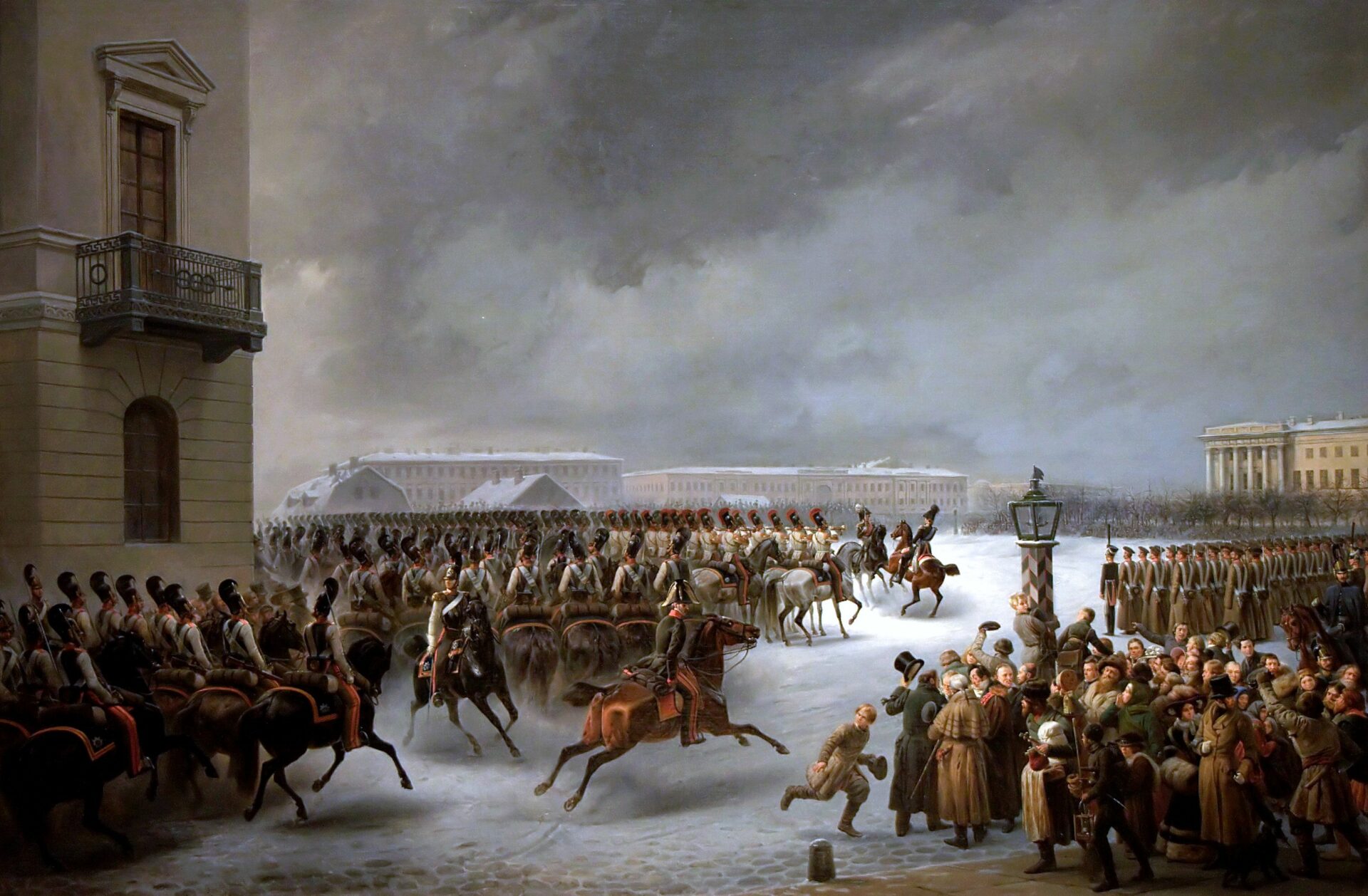Russia, which did so much to determine the outcome of revolutions elsewhere, itself felt the revolutionary wave, but with diminished force. Liberal ideas continued to penetrate the country, spread by the secret societies that flourished in Russia after 1815.
The introduction of Freemasonry during the eighteenth century had enabled nobles to meet on equal terms with men from other ranks of society. Moreover, the contrast between the relatively enlightened West and backward Russia made a deep impression on officers who had served in the campaigns against Napoleon. High-ranking officers at St. Petersburg secretly formed the Northern Society, which aimed to make Russia a limited, decentralized monarchy, with the various provinces enjoying rights somewhat like those of American states.
The serfs would receive their freedom but no land. These reforms would be achieved by peaceful means. A second secret organization, the Southern Society, with headquarters at Kiev, included many relatively impoverished officers among its members. It advocated a highly centralized republic, the granting of land to liberated serfs, and the assassination of the czar to gain its ends.
Both societies tried to profit by the political confusion following the sudden death of Alexander I in December of 1825. Since Alexander left no son, the crown would normally have passed to his younger brother, Constantine. Constantine, however, had relinquished his rights to a still younger brother, Nicholas, but in a document so secret that Nicholas never saw it.
On the death of Alexander, Constantine declared that Nicholas was the legal czar, and Nicholas declared that Constantine was. While the two brothers were clarifying their status, the Northern Society summoned the St. Petersburg garrison to revolt against Nicholas. Throughout the day of December 26, 1825, the rebels stood their ground in Russia’s capital city until Nicholas subdued them.
The Decembrist revolt thoroughly alarmed Czar Nicholas I (r. 1825-1855), who resolved to follow a severely autocratic policy. Nicholas had five Decembrists executed and exiled more than a hundred others to Siberia, where many of them contributed to the advance of local government and education. The Decembrists were the first in a long line of modern Russian political martyrs.

